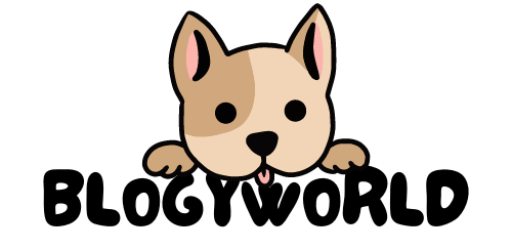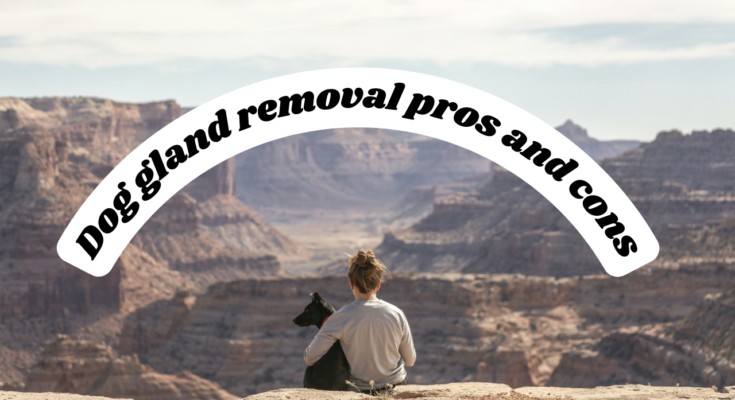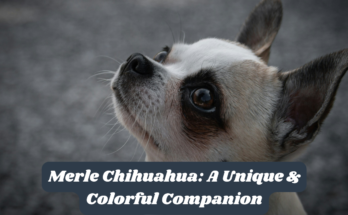Glands in Dogs:
The Dog gland removal is a pair of small sacs that sit just inside the anus. They comprise a strong-smelling liquid charity for marking territory. Healthy anal glands hollow naturally when a dog poos, but if this doesn’t come about, they can over fill and block.
The anal glands, or scent glands as they are often known, are an integral part of canine physiology. Situated slightly below and to the side of a dog’s anus, these two small pouches secrete a unique fluid. This fluid, which carries a distinctive and musky scent, is crucial for canine communication.
Role of Anal Glands in Communication:
Historically tracing back to their wolf ancestors, dogs have rummage-sale these glands as a means of communication. In the wild, wolves would usage this scent for marks of territories, identifying individual members within a pack, and even to relay information about their emotional state or health. Domesticated dogs have reserved this ancestral trait. As soon as a pet dog greets another dog and they sniff each other’s rear end, they are effectually “reading” the information from the anal glands, much like a social identity card.
Physiology and Function:
Every gland performances as a reservoir for this thick, oily substance. Usually, during evacuation, a small amount of this fluid is embraced out, marking the feces with the dog’s individual scent. On the other hand, worries take place when the fluid isn’t expelled on a regular basis. It can thicken, leading to impaction. An impacted gland is not just painful for the dog but also at a higher danger of contaminations and swellings.
Reasons Leading to Gland Problems:
Although the exact grounds can vary, several issues strength predisposes a dog to anal gland issues. Obesity is a most important factor, as unnecessary fat can compress the ducts leading from the glands. Allergies can main to inflammation around the anus, moving gland expression. Additionally, convinced breeds, due to their anatomy or genetic predispositions, capacity are more prone to these complications. Steady check-ups and deliberations with vet can assistance monitor and manage potential risks related with dog’s anal glands.
How to Support Healthy Glands in Dogs:
Entire Beast beef organ dog treats whole prey raw barf diet health and longevity. Make sure the well-being of dog’s anal glands is paramount in the holistic care approach for pet. These glands, often overlooked, play an essential role in the dog’s general health and comfort. Regular veterinary check-ups play a crucial part in early detection and management of any gland-related issues, helping to thwart complications before they escalate.
- Healthy Weight: Possession dog at its ideal weight can considerably decrease the strain on the anal glands. Obesity can exacerbate gland complications, so monitoring weight is essential.
- Wholesome Diet: A balanced and nutrient-rich diet make sure a dog receives all the essential nutrients it necessitates. This can also avert any undue weight on the glands.
- Fiber Addition: A number of vets advocate for adding a bit more fiber to dog’s meals. This addition can facilitate natural gland expression when dog defecates, serving to maintain their health.
What Does Canine Dog gland removal Consist of?
Before going to Dog gland removal pros and cons, it’s essential to understand the procedure. Removing anal glands in dogs is a relatively simple surgery; however, it requires some preparation and post-operative care to ensure a quick recovery.
Let’s discuss the anal gland removal procedure step by step.
Pre-operative Preparation:

Earlier the surgery, the veterinarian needs to evaluate and determine if Dog gland removal is the best course of treatment for the pretentious dog.
The evaluation possibly will include
An insignificant physical examination
Blood instruction &
Particular other essential diagnostic tests
If the surgery is essential to carry out, the veterinarian will provide the dog a full physical examination. It possibly will comprise a complete blood count (CBC) and blood chemistry profile. By responsibility that, the vet can make sure the compatibility of the dog’s health with anesthesia.
Anesthesia
The first step of Dog gland removal in the process is administering anesthesia to the dog. These make certain that the dog is at ease and pain-free during the surgery. Generally, veterinarians usage general anesthesia for this procedure.
Surgical Procedure:
Once the dog is without feeling and the surgical site is clean-shaven and cleaned, the vet will make an incision near the anus and carefully remove the anal glands.
The exact technique possibly will be different depending on the dog’s anatomy and the veterinarian’s preference.
Every so often, vets use a scalpel or scissors to take away the glands.
In other cases, a laser may be ready to lend a hand in removing the glands. As a result, it decreases bleeding and reduces healing time.
Subsequently removing the glands, the veterinarian will close the opening with sutures or staples.
Post-operative Care:
After the surgery, monitoring the dog closely is essential to ensure a smooth recovery.
The veterinarian possibly will prescribe discomfort medication and antibiotics to assistance avoid infection and manage uneasiness.
Moreover, the dog possibly will require to wear an Elizabethan collar. These supports preclude them from licking the opening site.
The veterinarian will make available detailed information on how to care for the dog post-surgery, which can be associated to
Diet
Exercise
Medication &
General care
Dog gland removal Pros and Cons:
Anal sacculectomy is a procedure with both benefits and some potential risks.
Pros of Dog Gland Removal:
Relief from Chronic Infections:
Dogs that feel discomfort from frequent disease-ridden Dog gland removal can improve immensely from anal gland exclusion surgery. The procedure removes the root foundation of the badly behaved, thereby prevention of recurrent infections.
Removal of Impaction Risks:
Gland impactions can reason substantial uneasiness to dogs. With surgical Dog gland removal, you contradict the jeopardy of impactions completely; make sure a more at ease life for the pet.
Concentrated Grooming and Maintenance:
For pet owners whose dogs have necessity of frequent trips to the groomer or vet for gland expression, removal can unkind fewer visits. This not only decreases stress for the dog but also interprets to smaller amount of expenditures and less disturbance for the owner.
Better-quality Quality of Life:
For dogs that have protracted anal gland issues, consuming them separate can expressively recuperate their quality of life. Without the nervousness, pain, and recurring infections, dogs can principal a supplementary carefree and happy life.
Cons of Dog Gland Removal:
Surgical Dangers:
Like any surgical procedure, Dog gland removal surgery originates with inherent dangers. Possible complications consist of reactions to anesthesia, post-operative infections, and prolonged regaining periods.
Potential for Scar Tissue:
Anal gland surgery can principal to scar tissue can grow at the surgery site, from time to time leading to uneasiness or complications in certain dogs.
Possible Behavioral Changes:
A particular dog’s powerless undergoes behavioral fluctuations post-surgery. It’s indispensable for pet owners to monitor their pets and look up with a veterinarian if they notice any noteworthy behavioral shifts.
Costs:
Surgical procedures can be exclusive. Additionally, there may be costs connected with post-operative care, medications, and follow-up visits for the treatment of Dog gland removal.
Replacements to Gland Removal:
Beforehand jumping to the deduction of gland removal, it’s critical for pet owners to consider and see the sights of other potential solutions. These replacements not only speech the immediate uneasiness accompanying by anal gland issues but also aim to promote general digestive health, which the stage a pivotal person in the steady expression of the glands.
- Regular Gland Expressions: Physical gland expressions by a vet or trained groomer can relieve numerous issues. This includes moderately embracing the glands to release the stored fluid, dropping the probabilities of impaction and ensuing infections.
- Dietary Changes:
- High-Fiber Foods: A diet rich in fiber can encourage firmer stools, which can unsurprisingly assistance in expressing the glands for the duration of defecation.
- Probiotics: These beneficial bacteria provision a healthy gut flora, which in go can positively inspiration the steady emptying of the anal glands.
- Omega-3 Fatty Acids: Including these into a dog’s diet can decrease irritation, potentially diminishing matters with the anal glands.
3. Medications: Certain vet’s strength recommend medications to decrease inflammation or fight infections in the anal glands. These can proposal temporary relief and help as an amount before bearing in mind surgery.
4. Topical Treatments: Warm compresses or medicated wipes can pacify the area from place to place the glands, dipping discomfort and irritation.
5. Weight Management: As obesity can aggravate anal gland problems, maintaining a dog’s optimum weight through a balanced diet and steady exercise can make a significant alteration.
Every dog is unique, and what works for one might not work for another. Hence, it’s always paramount to consult with a veterinarian to determine the most suitable approach tailored to the dog’s specific needs and health conditions.




